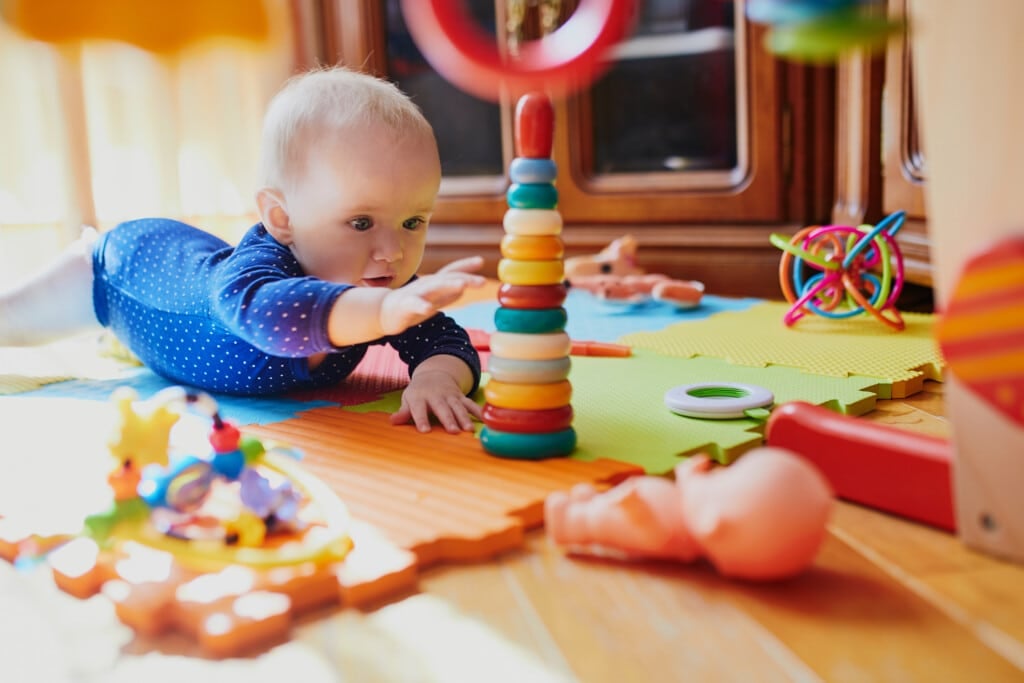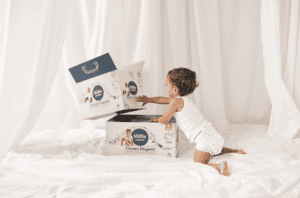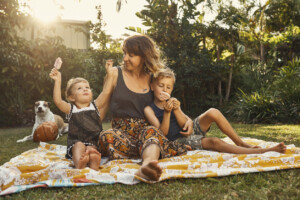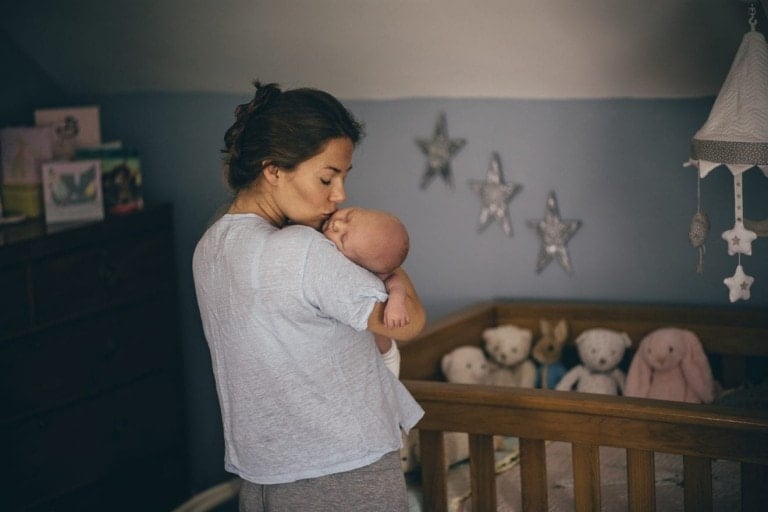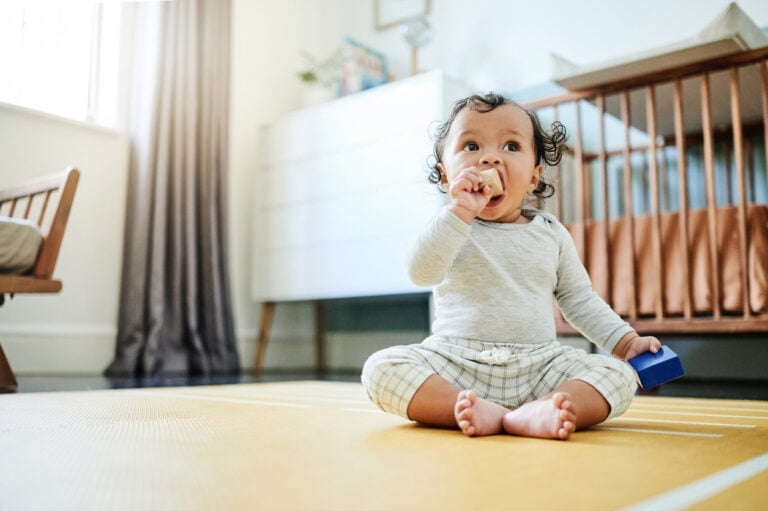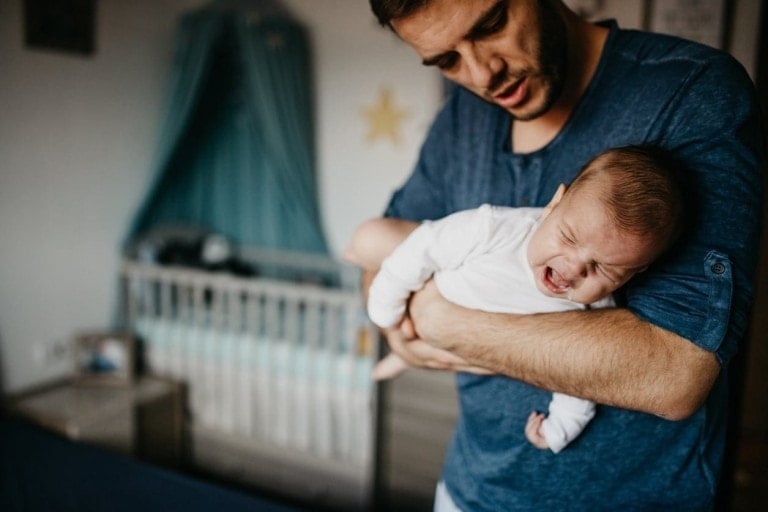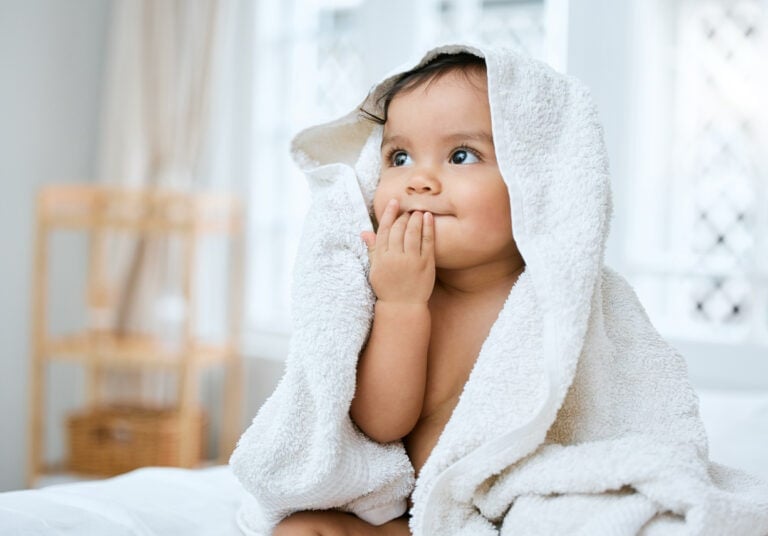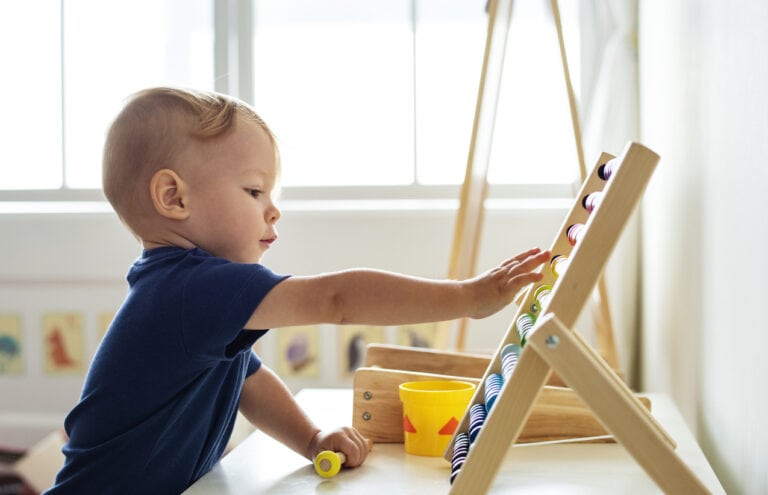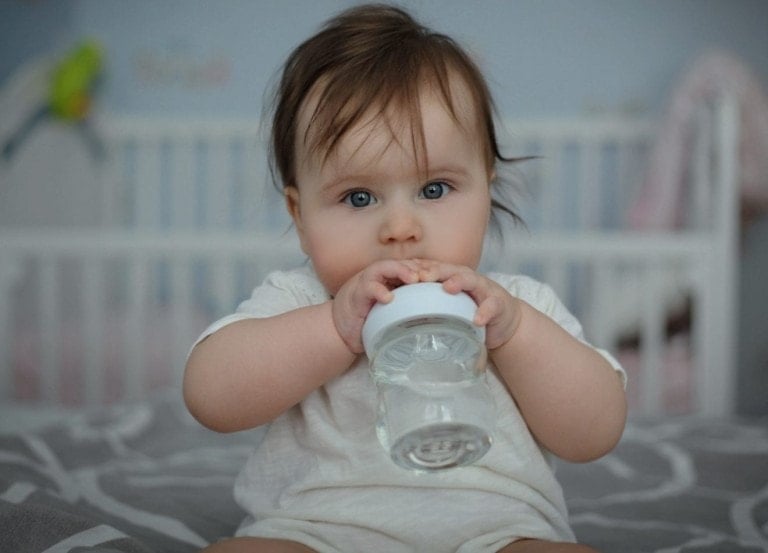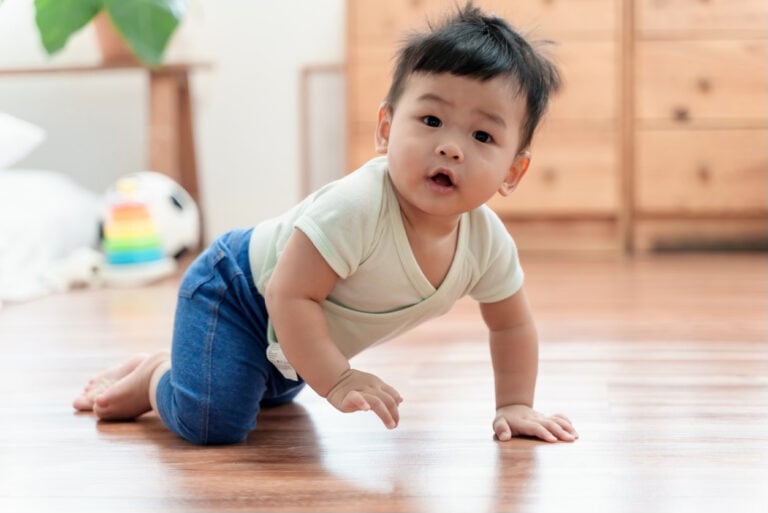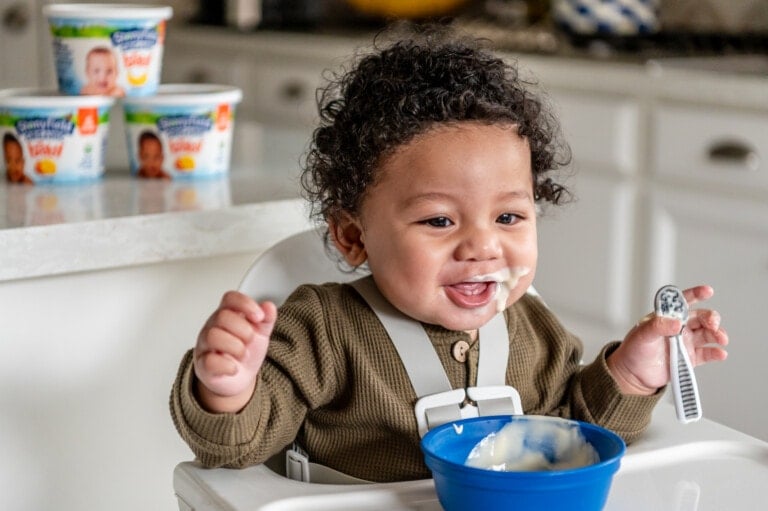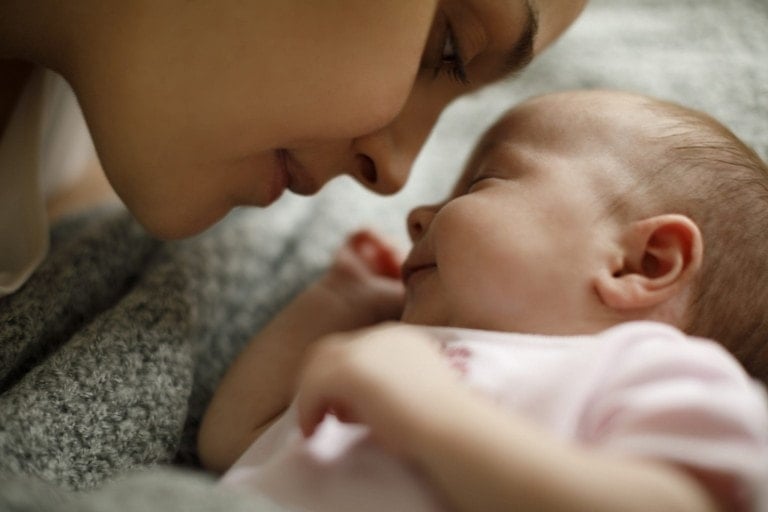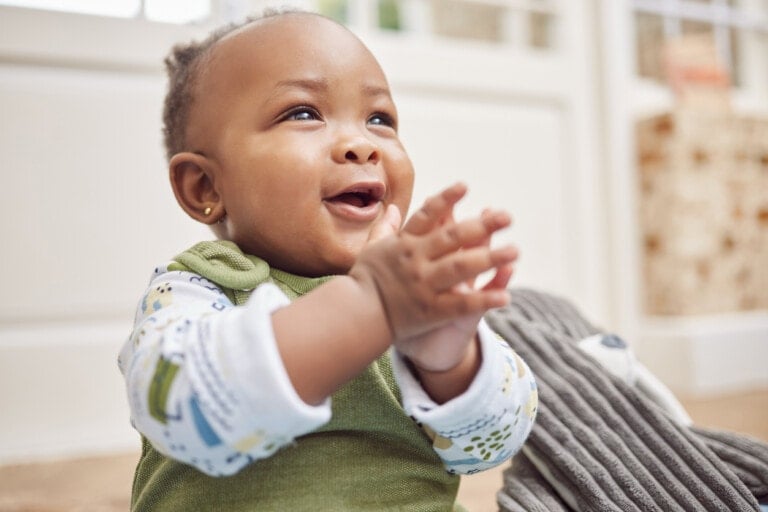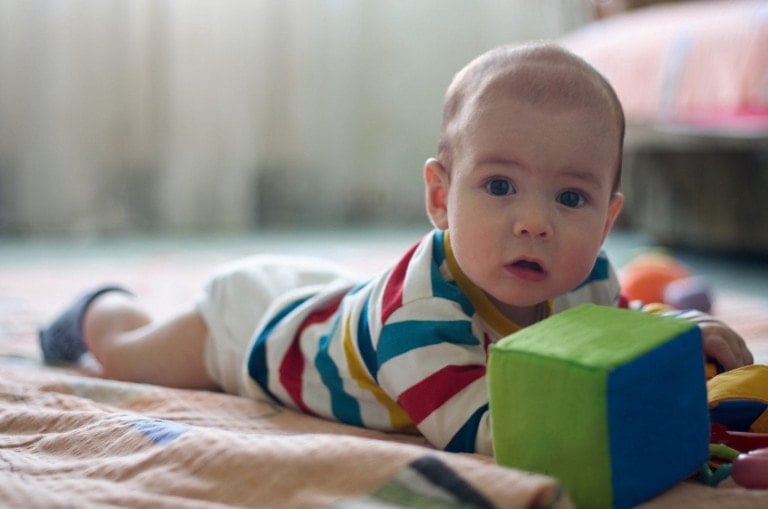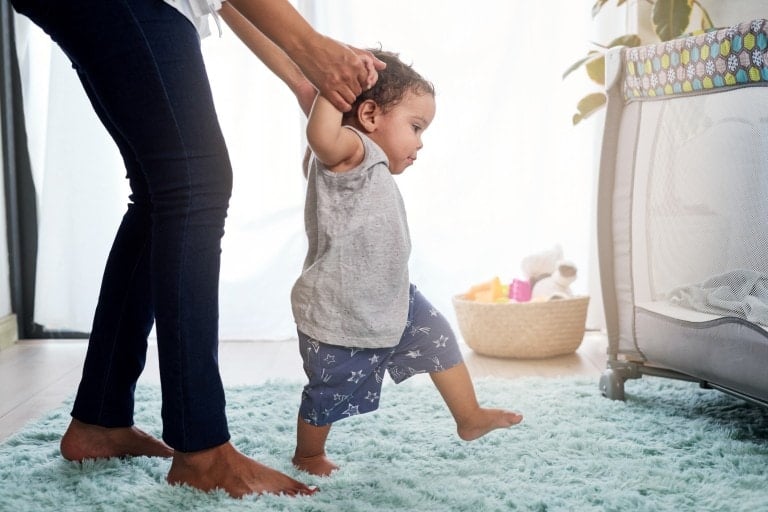Babies are born with incredible brains. So much so that by the time they enter the world, it’s already filled with 100 billion neurons and is a quarter of the size of the average adult brain (which will also double in size within the first year of life!).1,2
With all the facts pointing to how amazing infants’ brains are, it’s no surprise that researchers and health physicians constantly compare them to a sponge. They constantly and effortlessly soak in all the information surrounding them by simply being curious and observing their environment. Research from John Hopkins University suggests that more curious babies develop into even better learners than less curious babies. What does it come down to? Their pre-verbal levels of curiosity.3
Curious Babies Become Superior Learners
Jasmin Perez, the lead author of the study published in the Proceedings of the National Academy of Sciences, had her own curiosity: How curious are babies before they can begin speaking?3 Will they become even more curious as they age? Perez and her partner Lisa Feigenson, co-director of the Johns Hopkins University Laboratory for Child Development, kicked off the first-of-its-kind longitudinal study on 65 babies and their curiosity.
The first set of experiments was performed at a six-month interval. The first set was performed when the babies were 11 months old and the second at 17 months. The researchers observed an expected and surprising outcome. When infants were exposed to objects that acted unfamiliarly, they found that little ones spent more time exploring, learning, and performing their own tests to discover more about the peculiar objects–as if they were little scientists.
This may be predictive of a baby’s potential cognitive abilities. There seems to be a sparked interest over time in the surprising elements of this world. According to Feigenson, this data suggests that the most curious of the bunch have an advantage in learning about the world. The researchers found that some babies conducted mini-experiments to learn about specific objects or toys. They either pound them against the floor, toss them across the room, or drop them on the ground. Feigenson added that infants shape the investigative tests depending on the unanticipated event experienced.
The research showed that the babies in the more curious groups, who looked the longest at the two experiments, were rated as most curious in an information-seeking, problem-solving way. This may aid them in learning as they grow into even more curious toddlers.
Best Baby Toys That Encourage Curiosity
If you want to encourage your baby to become a superior learner, try offering more opportunities to explore their curiosity! Here are some toys that may pique your curious baby’s interest.
Building Blocks

Large wooden building blocks are a tried-and-true toy for instilling curiosity in babies. Your little one can experiment with the cause and effect of building the blocks and then knocking them down. They can also begin to understand the construction of the blocks, which helps increase their fine motor skills and help them practice their hand-eye coordination. Plus, you can teach them to count as they stack each block.
Xylophone

Xylophones are an excellent option for stimulating your baby’s mind. With each key creating a different instrument pitch, your infant can learn new sounds and begin to recognize their variation. Tapping on the xylophone also encourages musical development and helps them practice arm movement and hand-eye coordination.
Puzzles

Puzzles are a great way to exercise a curious baby’s brain, as both sides of the brain must work in unison. This will aid hand-eye coordination, tuning motor skills, memory, recognizing shapes, and spatial awareness.
Wooden Pounding Bench

A classic toy for babies, wooden pounding benches bring the game of peekaboo to life in an interactive way. Babies can hammer away at the pegs with a wooden mallet, like good ol’ Whack a Mole. It helps little cuties with coordination and concentration and lets them unleash their need to smash items.
Shape Sorting Toy

Infants can develop problem-solving and fine motor skills by learning to fit each shape into the correct hole. The various colors and shapes also help them start identifying shapes while practicing words like red, blue, square, and circle.
Ultimately, don’t worry if your little one hasn’t shown signs of curiosity. Adding a few interactive toys to their toy collection can do the trick to pique their interest and motivate them to practice their problem-solving skills. Watching them learn and explore will certainly be a treat!













